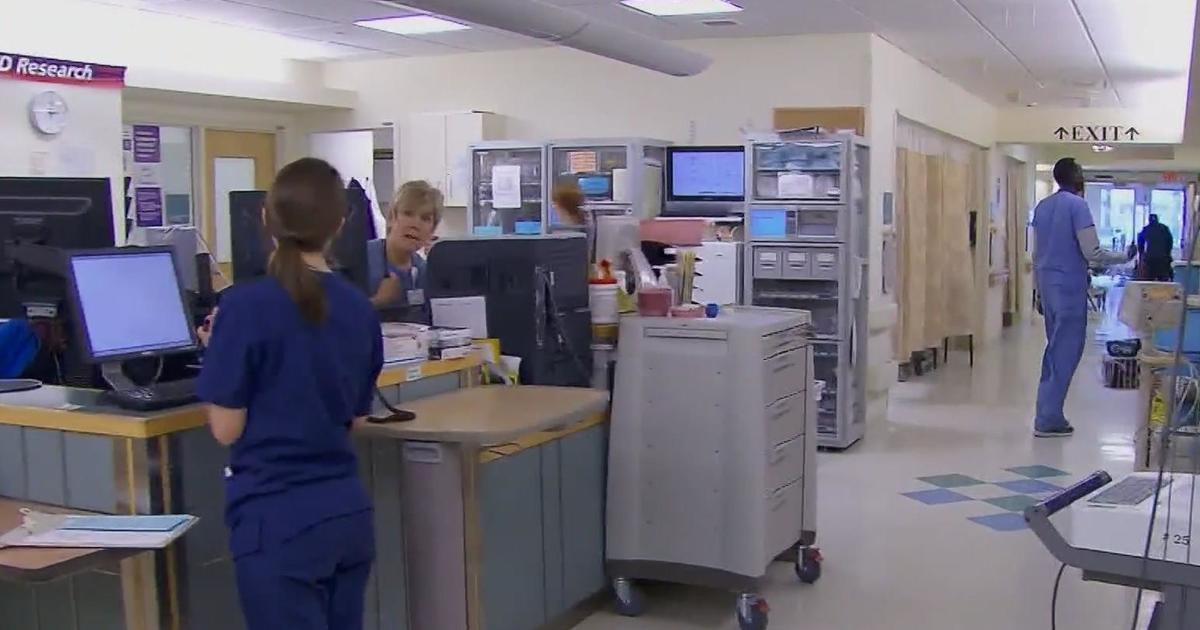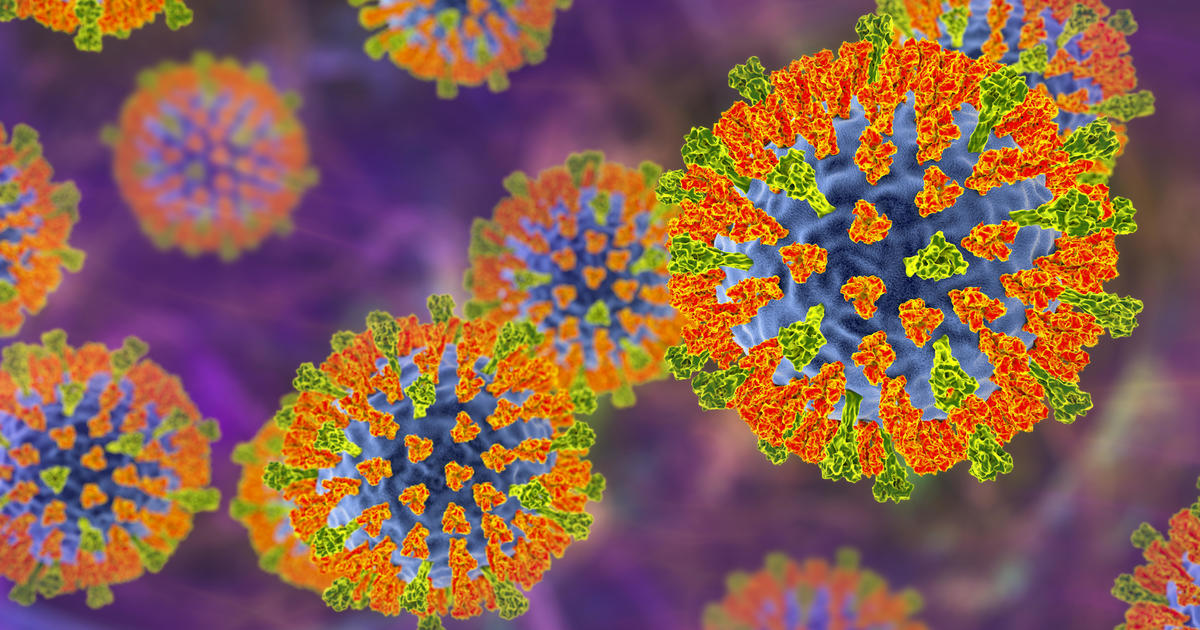Surge In Flu Forces Hospitals To Turn Away Patients
UPDATED: 1/8/2012 - 5:27 p.m.
CHICAGO (CBS) -- Some Chicago area hospitals on Tuesday were being forced to turn away emergency room patients because of an influx of people suffering from the flu.
Flu Hitting Hospitals Hard
In the city, University of Chicago, Northwestern and Swedish Covenant were among eight Chicago area hospitals that directed ambulances elsewhere at some point on Monday or Tuesday, because they were treating so many patients with the flu.
Advocate Christ Medical Center in Oak Lawn lifted its ambulance bypass order at 9 p.m. on Monday.
As of about 5 p.m. Tuesday, the Chicago Fire Department said six hospitals were "on bypass" because of the flu.
"Emergency departments are getting overrun with people with respiratory illness," said Melaney Arnold, spokeswoman for the Illinois Department of Public Health, told the Chicago Sun-Times. "We are seeing an increase in influenza cases."
Hospitals on "bypass" temporarily divert ambulances to other hospitals because of a high volume of patients.
The University of Chicago Medical Center emergency room has seen 166 flu cases this season, compared to just 43 last year.
Dr. Allison Bartlett said, even though flu season has already started, people should still get a flu shot.
"It takes about two weeks between when you get the flu shot and when you're protected against the flu," she said.
Hospitals haven't been the only places seeing a lot more patients because of the flu. Many clinics at Walgreens and CVS pharmacies have been flooded with patients with flu-like symptoms.
Waddie Grant started suffering flu-like symptoms Tuesday morning. First, he tried to get in to see his doctor, but couldn't get in right away, so he decided to go to a Walgreens Take Care Clinic in the Loop.
"I started feeling this little lump in my throat, and then some kind of a slight temperature," he said. "I don't want to get sick."
Walgreens pharmacy manager Nancy Salman said, "The Take Care Clinic has been extremely busy. It's been inundated with appointments, and walk-ins. They've seen anywhere from 20 to 25 patients a day."
The flu season in Chicago started much earlier than normal and is expected to be one of the worst in several years, medical experts have said.
Illinois Public Health Director Dr. LaMar Hasbrouck told WBBM Newsradio that last year at this time, there had only been two people with flu-like symptoms admitted to the intensive care units of hospitals in Illinois, with no deaths.
So far this season, he says, 147 people have been admitted to hospital intensive care units due to the flu, and six of those people have died.
Patients in need of critical care--such as those suffering from a stroke--would still be admitted to hospitals on bypass, Arnold told the Sun-Times.
The flu is hitting earlier and harder this year not only in Chicago but across the country, WBBM Newsradio's Lisa Fielding reports.
"We aren't seeing very sick people. We're just seeing more sick people," said Mary Alice Lavin, Director of infection, prevention and control with Rush University Medical Center.
Lavin says even though they encourage the flu vaccine, it doesn't always guarantee immunity.
"The viruses that were included in the vaccine this year are the ones that are circulating this year but studies have shown that the vaccine is only effective in 60 percent of people."
Will Vaccine Work?
Lavin says those who've gotten the vaccine don't get as sick as those who haven't.
The flu shot also takes about two weeks to be effective. Rush has seen 203 cases of the flu since Nov. 5, much higher than years past. Flu season usually lasts through March.
Dr. Julie Morita of the Chicago Department of Public Health says city residents can call 311 to find out where to get a free flu shot.
Doctors also advise patients who have had the flu for two days to avoid coming to the emergency room. Instead, stay home and treat yourself with plenty of fluids, rest and proper hygiene. Flu medications are only effective if taken during the initial stages of symptoms.
Dr. David Zich, internal medicine and emergency medicine physician at Northwestern Memorial Hospital, says that if you get flu symptoms, you're still considered contagious until 24 hours after your fever is gone.
At Christ Hospital in Oak Lawn, Dr. Brian Sayger, vice-chairman of Emergency Medicine, suggests that, if you start coming down with flu-like symptoms such as a high fever, achy body, chills and shakes, within 48 hours, you should ask your doctor to prescribe an antiviral flu drug like Tamiflu.
Antivirals, he says, tend to work best at reducing the severity of symptoms--not ending the flu--if taken in that two-day window.



